This band has been going since the ’80s. Why is the world only now doing a double-take?
With ‘praise the Lord’ passion, Annie & the Caldwells fuse jazz and funk with American Civil War-era Deep South gospel music, and continue an intergenerational family music phenomenon that’s generated a cult following for half a century.
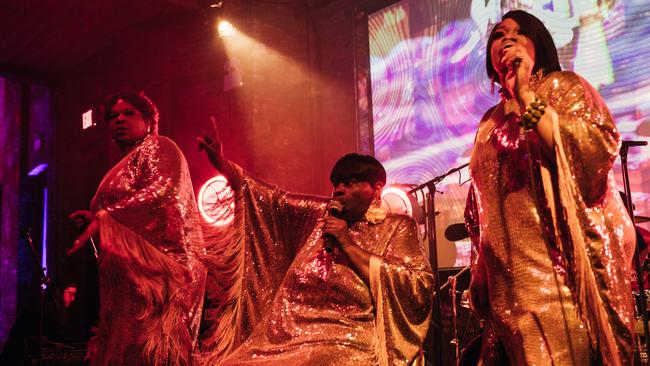
St John’s Church in Clapton, East London, and Deborah Caldwell has fallen, singing, to the floor. “Satan had me blind, so I could not see that I was wrong!” she belts, her microphone partially obscured by the folds of her sparkling lurex dress, as three other vocalists – her mother, Annie, sister Anjessica and Toni, Annie’s goddaughter – respond with righteous fervour.
“Wrong! I was wrong!” they chorus, buoyed by the adrenalising guitar riffs of Willie Joe Caldwell Sr, the funky bass and fanging drums of brothers Willie Jr and Abel Caldwell, and a packed crowd that’s on its feet and ripe for healing.
The concert is part of Church of Sound, a monthly event showcasing left-field jazz, funk and ambient music, and played in the round. It’s January, and chilly outside, but family outfit Annie & the Caldwells have brought their Mississippi gospel-disco fire, an aesthetic part-scorching soul revue, part-Pentecostal shakedown. The band isn’t yet well known in the UK; most people here have placed their faith in the Church of Sound brand and the rave reviews for Can’t Lose My (Soul), the group’s international debut album, which came out late last year on David Byrne’s Luaka Bop label.
Which only makes this performance, with its giant vocals and soaring harmonies, its raw power, up-tempo exuberance and real-life story-songs of struggle and redemption, even more remarkable.
“That was sure a magical night, like we were part of Heaven,” says Annie Caldwell, the band’s matriarch and lead vocalist, regal in an armchair at home in West Point, Mississippi, backdropped by a glass-doored cabinet teeming with photos and curios. “But wherever we play we’re praising God. It don’t matter where you at. A church, a club, a festival. The church is in you.”
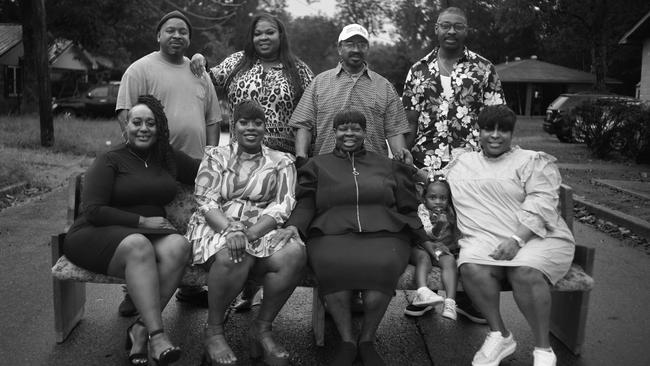
Forty-something Anjessica, who has popped down from her house up the street, nods as she readjusts her position on the chair’s armrest, her colourful sleeve tattoos testament to the rebellious streak her mother quashed by insisting she join the band as a teenager.
In the kitchen, out of sight, Willie Joe Caldwell – Annie’s husband of 50 years – drops a pan on the floor with a loud clatter. Anjessica cranes her neck. “Daddy’s cooking dinner,” she says. Willie Joe has long retired from his job as a welder in a foundry in West Point, a former agricultural and railroad town in Clay County, just across the Alabama state line. The rest of the group still have day jobs. Toni is a schoolteacher. Anjessica does customer care for an insurance company. Deborah (pronounced D’bora) styles hair, including the fancy swooshes and slayed edges the four Caldwell women sport onstage. Willie Jr drives a forklift. Abel ferries hospital dialysis patients.
And Annie? Go down any weekday to Caldwell Fashions on West Point’s Main Street, the go-to store for women dressing for COGIC (Church of God in Christ) assemblies, and there she is behind the counter. Or at least, that’s where she is in the video for Wrong, kitted out in a white peplum dress, surrounded by racks of starched shirts and shiny gabardine fabric, kicking off the song by reassuring Deborah – resplendent in voluminous canary yellow – that “everything’s going to be okay”.
“We carry clothes for all occasions,” says Annie. “Men’s, women’s, children’s. Church, choir, party. We don’t discriminate.”
For their visit to London and Europe, their first tour outside the southern US states, they crammed their suitcases with a choice of outfits. They’ll be doing as much when they play Australia, including Melbourne’s Rising festival, in June: “What we wear goes by where we at. When we go to the, what is it … the soundcheck … we see how (the venue) looks. Then we decide what to put on.”
As Annie & the Caldwells’ popularity continues to skyrocket, the shop’s “Open by appointment only” sign is frequently found hanging on its door. For while this intergenerational band has been going since the 1980s, making music that folds in influences from Bootsy Collins, Chaka Khan and Kool and the Gang to electro-funksters the SOS Band, it’s only now that the wider world is double-taking.
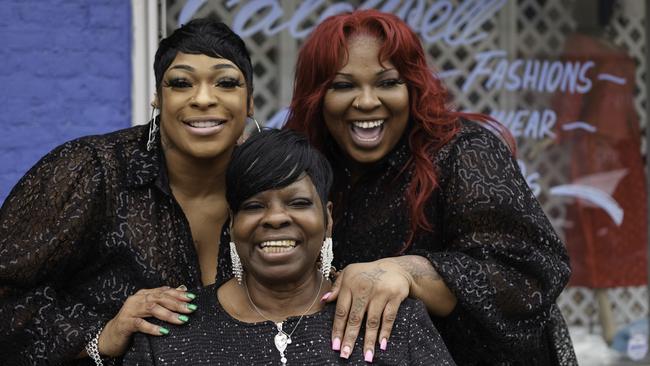
Why this is has much to do with the palpable authenticity of a black church-based, post-Civil Rights era sound energised by funk, rock and soul, its seeming ability to counter the spiritual chasm carved by our chaotic times. Then there’s the fact that Luaka Bop has elevated Annie and co from Clay County legends to burgeoning global stars, first by including a track by Annie’s brothers’ group, the Staples Jr Singers (named for iconic gospel/R&B outfit The Staple Singers), on The Time for Peace is Now: Gospel Music About Us, a 2019 compilation of ’70s-era spiritual soul, then by reissuing (in 2022) the band’s 1975 album, When Do We Get Paid, which features a teenage Annie Brown Caldwell.
“We sold that record after our shows and from the front porch of our home in Aberdeen,” says Annie, who moved to West Point, 20 miles south, when she married Willie Joe Caldwell – who had his own family church band – at 17. “God has continued to bless. People see us enjoying life with the Lord.”
She founded Annie & the Caldwells with an aim to keep her four kids out of trouble, to steer them away from “the blues” (by which she means all non-secular music) and back to gospel. “They be harming and going on,” she says. “One day I heard them practising for a school singing contest and I said, ‘These girls sound good, we better get them before the devil does’.”
Their songs’ striking four-part melodies hark to the antebellum quartet tradition once sung by the enslaved. But their lyrics are personal, lived. Among the tracks on I Can’t Lose (My Soul) are tales of a brother’s illness and recovery following a heart transplant (Don’t You Hear Me Calling), the family’s escape from a house fire (Dear Lord) and Wrong, the tale of Deborah’s revenge on her cheating husband (“Women relate,” she has said. “We wouldn’t be in this position if men didn’t put us there”).
Following a call “by a man named David” – former Talking Heads frontman David Byrne – the Caldwell family took their songs to a pop-up recording studio at the Message Centre, the little West Point church where Willie Joe Sr plays guitar on Sundays, and with producer Ahmed Abdullahi Gallab laid down Can’t Lose (My Soul), an album pulsing with spirituality, disco shimmer and a kind of gritty joy. In February came a banging remix of Wrong by Studio 54 disco legend and house music producer Nicky Siano, whose DJ set opened an Annie & the Caldwells performance at the Public Records Club in New York on May 8. Will Deborah be falling to the floor again during her vocal feature? Annie flashes a smile. “All I can say is when my daughter gets happy, she just lets loose.”

Improvisation comes easily to a band made tight by longevity, by a willingness to call each other out for any bum notes or off-keys: “I tried to get Daddy to do that guitar riff from SOS Band on I Made It,” says Anjessica of their furiously catchy second single, imitating a few syncopated bars. “We told him, ‘Don’t play like you tryin’ to do it, play like you know how to do it’ but he couldn’t. So we said forget it.”
Rehearsals are rare. When the spirit comes down, the shows take their own direction. Annie performs seated, her husky might redolent of Mahalia Jackson, Mavis Staples, Sister Rosetta Tharpe. Her daughters and goddaughter stand before the mics, swaying, sashaying, calling-and-responding. The male rhythm section is sometimes elegant, often rollicking and grooving, but it’s the women who are steering the show. Behind the scenes in West Point, a third generation – Annie’s granddaughters – are already singing up a tiny storm.
“Who here believes? Put your hands up!” shouts Annie at the vibing Church of Sound, but hardly anyone does. She changes tack. “Who needs a blessing?” she cries, and my friend gives me a nudge; after I push to the front, I find that I’m part of a dancing queue. Eventually, Annie grabs hold of my hand. “You made it!” she sings as more people crash the space around us. “Oh Lord, we made it!”
Success was inevitable, she tells me from West Point. “All I love to do is praise God, and God told me my gift would make room for us to receive it all, to open us up to Heaven. But I didn’t know that we’d be going this far across the seas or going where we going with you all.
“I just thought we’d be around the United States, or just around here.” She waves a manicured hand towards a window. “It’s all just like a dream,” she says, smiling again.
Annie and the Caldwells play at Sydney’s City Recital Hall on June 5 and Melbourne Town Hall as part of Rising Festival on June 7.



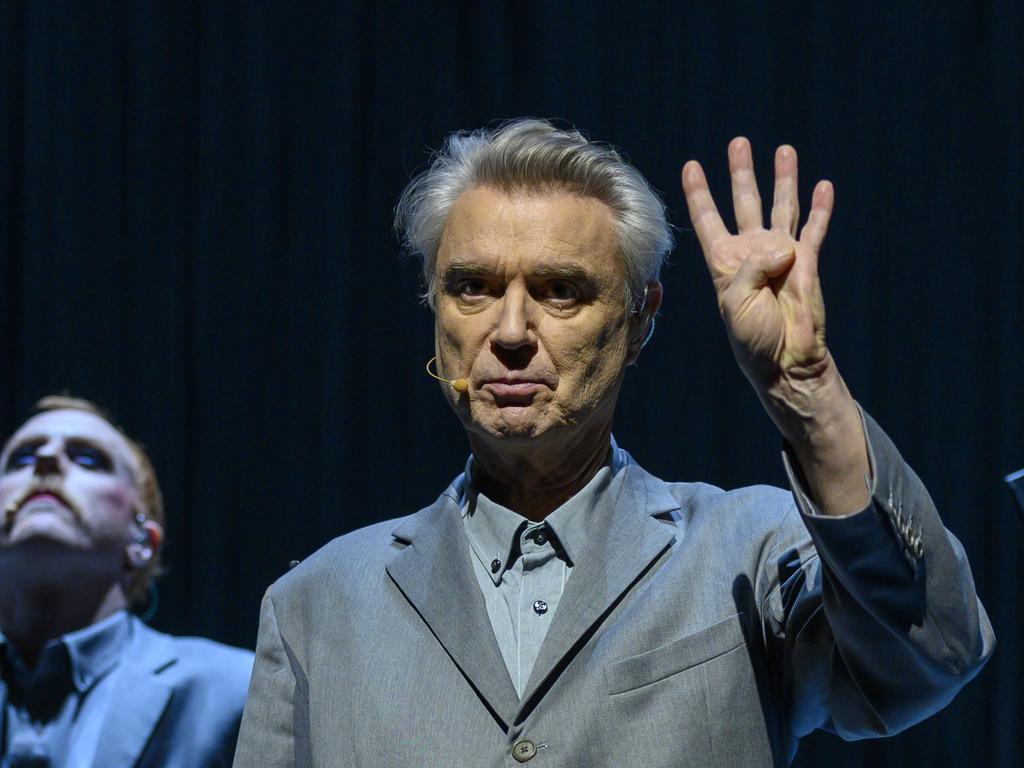
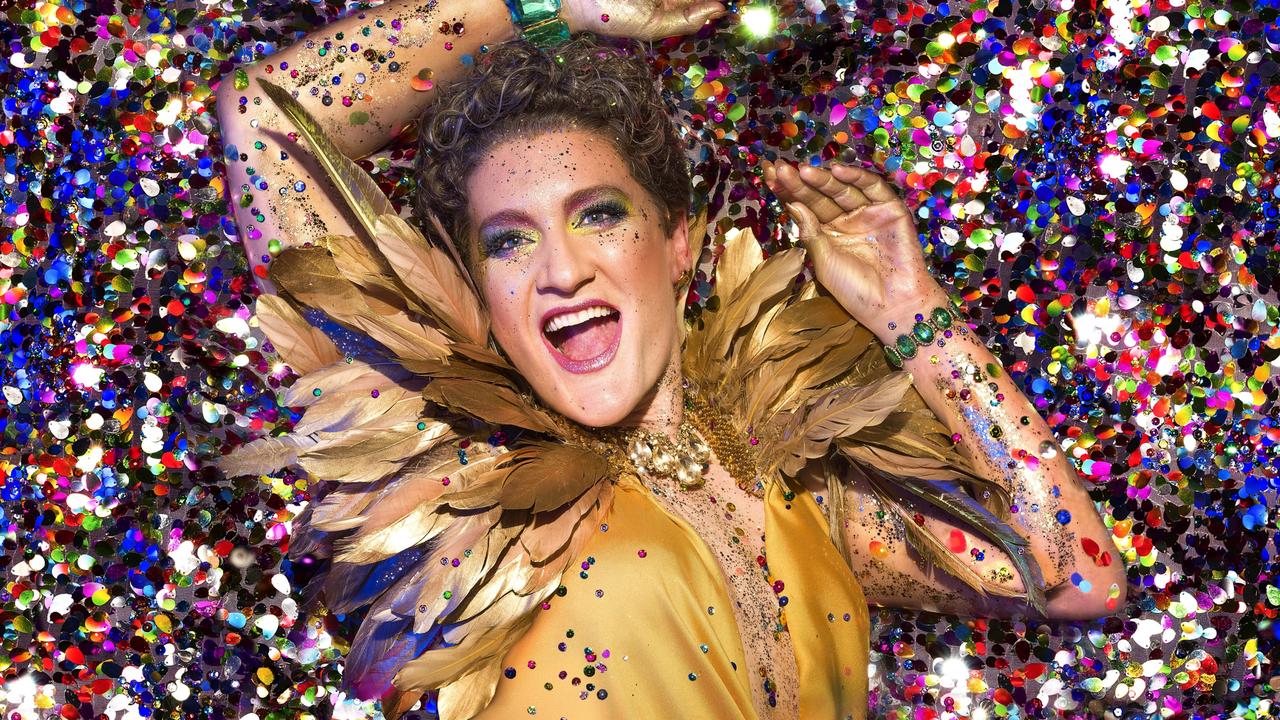
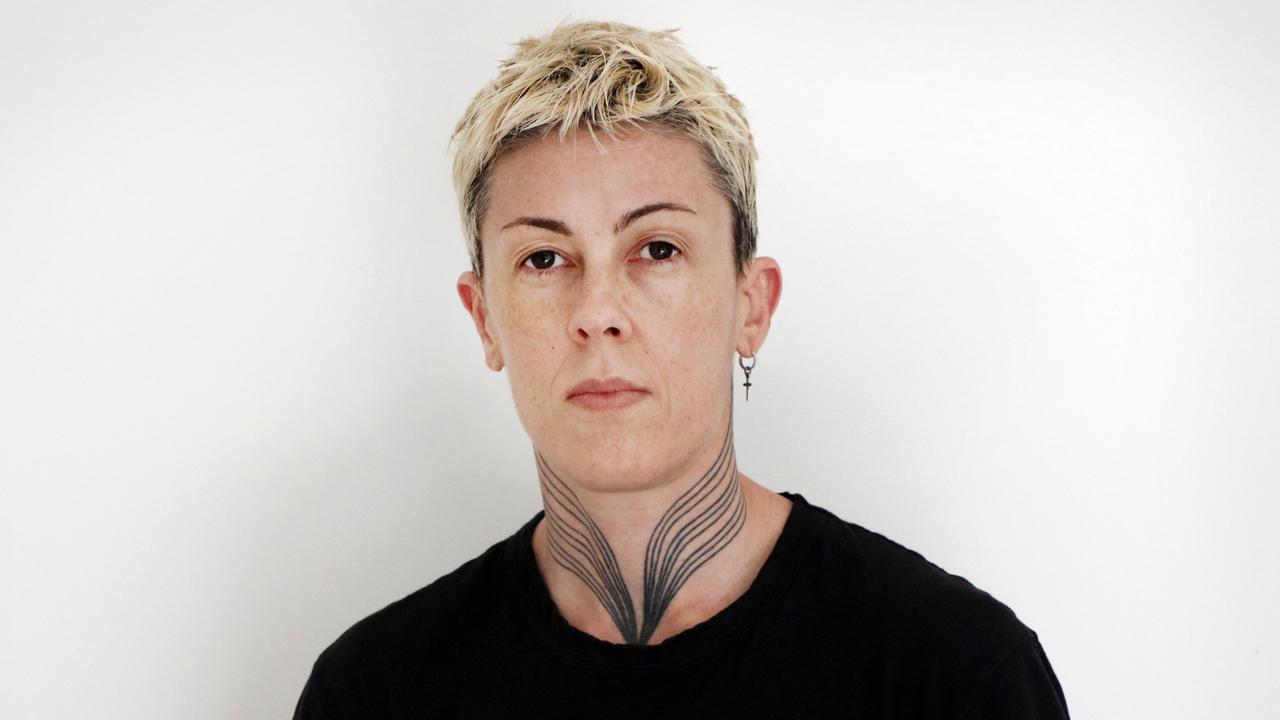
To join the conversation, please log in. Don't have an account? Register
Join the conversation, you are commenting as Logout